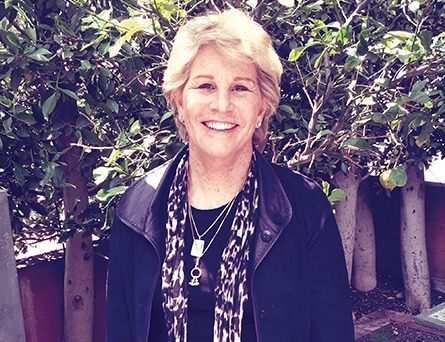The Five Spot: Nancy Tellem

The smarter way to stay on top of broadcasting and cable industry. Sign up below
You are now subscribed
Your newsletter sign-up was successful
For Nancy Tellem, every day is an upfront. The former CBS and Warner Bros. exec no longer sets her watch by the annual spring ritual of media buyers and sellers in Manhattan. But in some ways, she’s now deeper into the equation than ever. After heading up Microsoft’s since-jettisoned foray into original programming, in 2015 she joined interactive video company Interlude. Its technology defies easy description, but creates an interactive experience similar to Dungeons & Dragons or a Choose Your Own Adventure book. Interlude is teaming with CBS for a new take on The Twilight Zone, and with MGM for a retooled WarGames. But programming is only part of the story. Interlude also believes it can help advertisers trying to reach consumers with branded stories in a stickier format. Tellem spoke with B&C editor Dade Hayes the day after the CBS upfront. Taking the stage at Carnegie Hall “seems like yesterday,” Tellem said, “but in other ways it feels so long ago.” An edited transcript follows.
During the upfronts and NewFronts, digital and linear battled over their reach to millennials. Do you want to declare a winner?
The idea that it’s either linear or digital is a misconception. Premium content is premium content, whether it’s linear, nonlinear or delivered on the digital platforms. But I think there’s a lot that the more traditional media people attribute to digital, which is more about how digital has evolved in the last five years.
Why are millennials valuable and why are they elusive?
Millennials are 80 million people in the U.S. While TV is important to them, there are so many other entertainment options and TV isn’t necessarily the main one. The problem is the demand for quality, and that which resonates with this audience will put traditional networks under even more pressure to deliver it—and deliver it in a way that addresses this demo’s lifestyle.
How is Interlude different now from when you got there?
It’s much more focused on understanding the audience. People don’t quite understand what interactivity means and the depth to which this technology affects the story narrative until they actually see it. The audience becomes part of the story narrative. What we have seen, which is quite exciting, is 10 times the level of engagement of a traditional linear project. When you’re addressing the frustrations of traditional media in first reaching a younger audience and keeping them engaged, we are, in fact, cracking that code. We also have a creative agency inside Interlude and relationships with major advertisers looking for a different relationship with content.
The smarter way to stay on top of broadcasting and cable industry. Sign up below
There has been a huge industry push into VR, 360 and interactive content.
Everybody is frustrated by linear advertising and the way it’s traditionally been done, whether it’s a 30-second spot or a 15-second spot. Online, the connection that advertisers are trying to have with the consumer is really not happening. Interlude is able to reach not the top of the funnel—where you’re dealing with numerous impressions and advertisers don’t know where their money is going—but the bottom of the funnel where you’re trying to reach really involved consumers.
This is a left turn, but I have to ask: What did you think of FX's The People v. O.J. Simpson given your legal roots and stint as a consultant on F. Lee Bailey's TV show, Lie Detector?
I actually lived in the neighborhood when all of this happened and experienced it personally. It brought me back to the time when it took over the Westside. Obviously there were some dramatic licenses taken, but it was extraordinarily well done. While I was watching it, I started having those same anxious feelings. The emotional response I had was like the same one I had the first time around.
